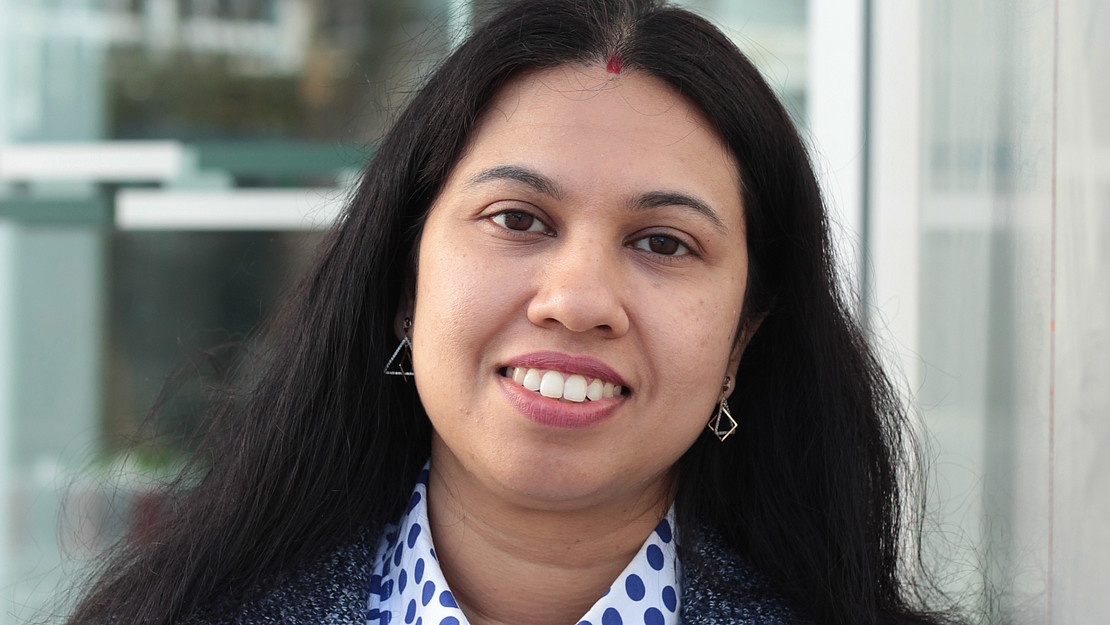This page contains automatically translated content.
What drives me: Biological clocks in tardigrades
 Image: Christina Taraschewski
Image: Christina TaraschewskiI come from Kolkata in eastern India. After completing my master's degree in zoology, I worked for five years at the Central Institute of Fisheries Education, researching a fish species related to herring called Tenualosa ilisha. This fish is very important for the diet in my home country. The special thing about it is that it lives in the sea most of the time, but migrates up the rivers twice a year to spawn, similar to salmon. I have researched how two specific proteins make the transition from salt to fresh water easier.
I can build on this work with proteins for my doctoral thesis in Kassel. I am associated with the research training group "Multiscale Clocks", which is concerned with the internal clocks of various organisms. We are investigating which mechanisms control the wake and sleep cycle, the seasonal cycle and so on. Specifically, I am investigating photoreceptor molecules, neuropeptides and their relationship to various "clock" genes in tardigrades. The tardigrades, which are less than a millimeter in size, are something absolutely extraordinary: they can withstand extreme cold, dryness and lack of oxygen and can temporarily put themselves into a death-like state. Their organism functions completely differently from that of the fruit fly, for example, a classic model organism. My initial findings suggest that their internal clocks are also fundamentally different.
I came to Germany with my husband, who is also a scientist. My doctoral supervisor here in Kassel is Georg Mayer, he has a very international team and the work - we focus our research on tardigrades and stubby-footed animals - is a lot of fun. A scholarship from the Otto Braun Fund helps me financially. Research in Germany is similar to research in India, apart from a few small things: For example, most of the companies that produce laboratory equipment and chemicals are based in Europe. That's why you have an order on the table just two days later and don't have to wait one or two weeks for it. In addition, the focus in India is more on applied research, so there are fewer opportunities for young female scientists who want to go into basic research.
This article was published in the university magazine publik 2024/2. protocol: Sebastian Mense